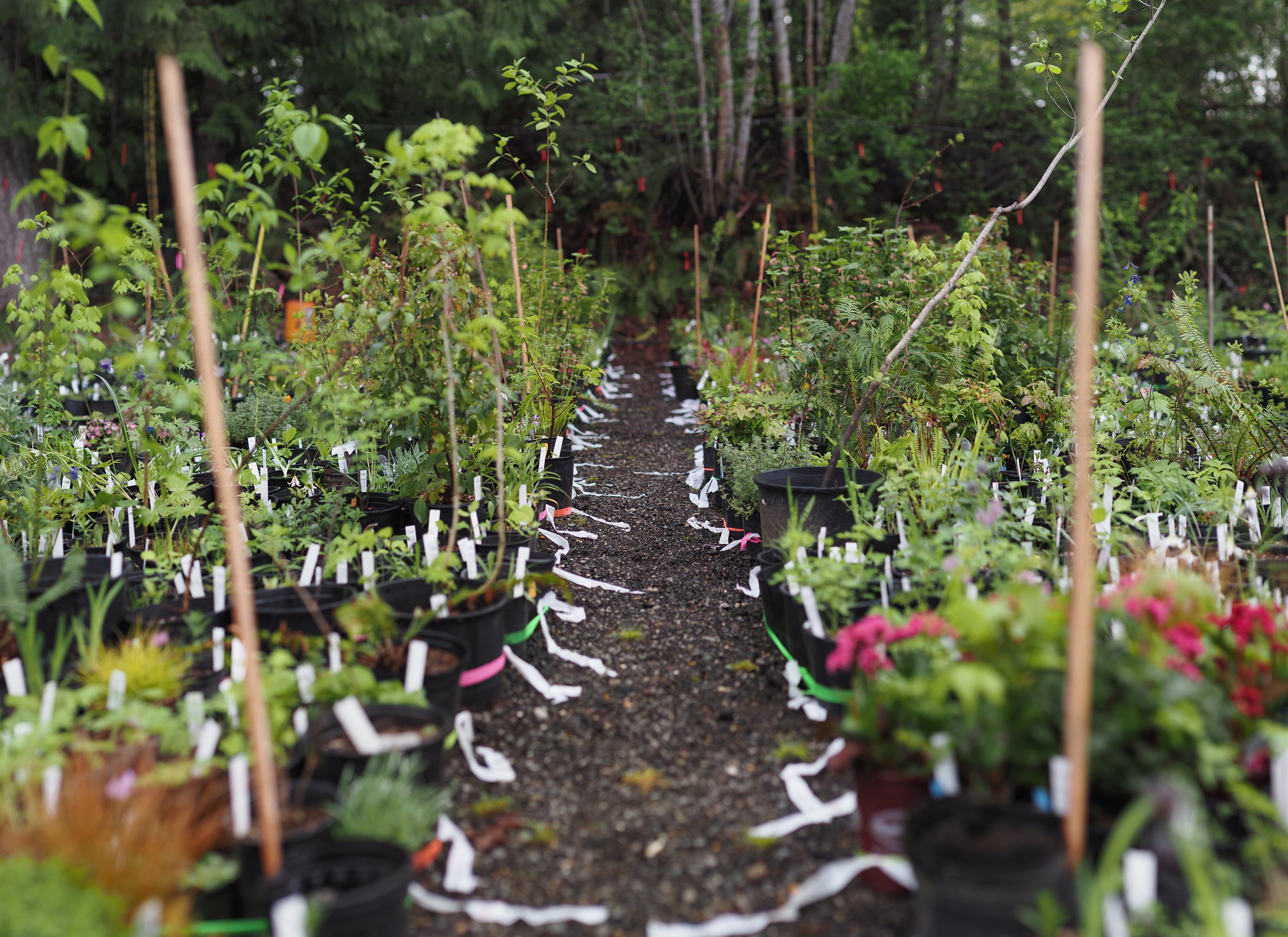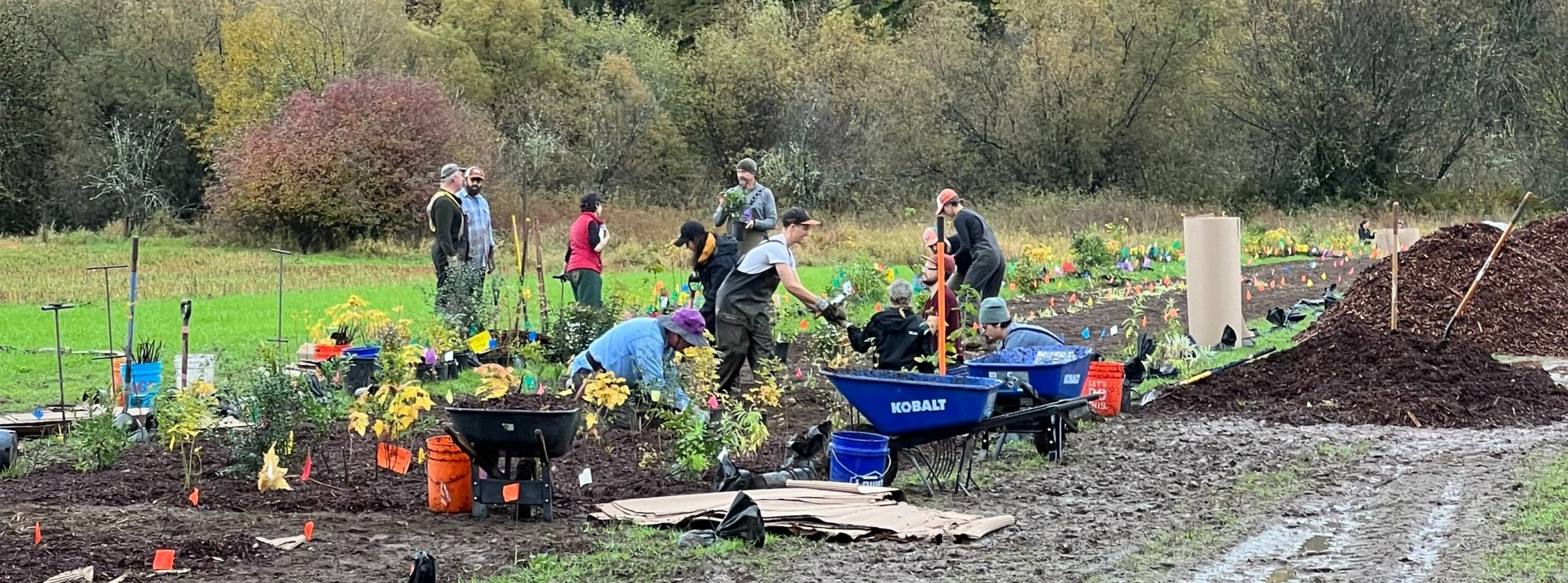
Providing hands-on education to protect and conserve water resources and habitat from the South Sound prairies to the shores of
the Salish Sea.
Since 1994, our team has been doing work to protect water resources and improve habitat. We are focused in Thurston County, but we interact with communities throughout the Salish Sea.
Who We Are
The Native Plant Salvage Foundation is a non-profit, 501(c) (3) charitable organization, founded in 2001 to help raise funds for the work of the Native Plant Salvage Project, which is a program of WSU Extension Thurston County, started in 1994. Our joint work is entirely supported by local contributions, grants and contract work.
The Foundation is guided by a volunteer board of directors and supported by a small but mighty crew of volunteers, supporters, educators and community partners. Our work is also supported by AmeriCorps members from the Washington Service Corps.
Through field projects and educational activities we work to restore vegetation, re-create habitat, and preserve existing flora.
What We Do
As our name implies, we organize “salvages” during the winter months at sites that are soon to be developed. However, our program areas expand far beyond our winter salvages. At the Native Plant Salvage Foundation Nursery (aka the Holding Beds) we propagate plants and store salvaged plants for use in future revegetation and green stormwater projects.
Our work encompasses:
Environmental restoration
Plant salvages
Plant identification training
Education programs for groups, schools, or whoever is curious
Creating proactive community partnerships
Sustainable landscaping/naturescaping
Green Stormwater Infrastructure (GSI)/Low Impact Development (LID)
Propagating and caring for native plants
Check out our Learning resources and Volunteer opportunities, or contact us to learn more.

“Our education, training and advocacy work give citizens a direct, hands-on opportunity to do something to improve water quality, conserve natural resources, reduce pesticide use, and influence people’s appreciation of the natural world.”
— Longtime supporter Lydia Beth
Sign up for emails to learn about seasonal goings on, plant sales, and volunteer opportunities.
Please be sure to check your spam and other inbox folders, as we are often filtered out!


